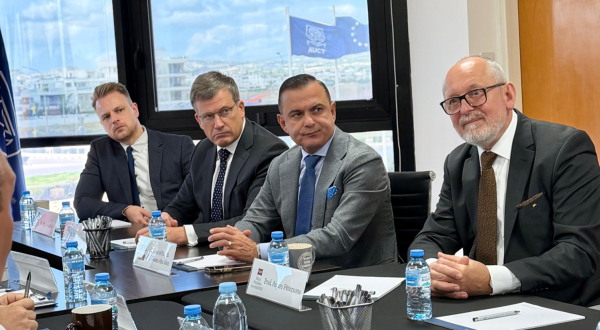31st International Biometric Conference Will be Held in Riga
On 10–15 July 2022, Riga will host the 31st International Biometric Conference (IBC2022) organised by The International Biometric Society together with Rīga Stradiņš University (RSU). The conference is open to any researcher interested in participating.
The aim of the conference is to promote the development and application of statistical and mathematical theory methods in biosciences, including agriculture, biomedicine, public health, ecology, environmental science, forestry and related disciplines.
The conference will take place at the Radisson Blu Latvija Conference & Spa Hotel’s Conference Centre, at 55 Elizabetes iela in Riga. Up to 500 participants from Europe, South America, North America, Asia, Africa and Australia are expected to attend the conference. More than 900 people attended the previous conference in Barcelona in 2018. The conference will last for six days, from Sunday to Friday. Due to COVID-19 restrictions, the event will be organised in the “green” safety mode, meaning that all participants will need to be able to present COVID-19 certificates as this will allow for all attendees to be able to gather, according to current regulations. Guests from over 50 countries have already signed up for the conference.
Apply for the conference
All applications will be considered by the International Programmes Committee and authors will be informed about the status of their abstracts (oral or poster presentation) by February 2022.
The application must include:
- abstract (2,500 characters)
- title
- author(s)
During the submission process, authors are invited to select three methodological topics and one field of application that most closely corresponds to the abstracts from the list. Registration for the conference will open next spring.
The number of oral abstract submissions is limited to one per presenter.
Continuing the tradition of the previous conference, awards in the nominations for the best student oral presentations and the best poster presentations will also be given.
Before the conference on 10 July, there will be a few one-day courses led by experienced lecturers.
- Pseudo Observation in survival analysis – Per Kragh Anderson & Henrik Ravn
- Bayesian Methods for missing Covariates in Longitudinal Studies – Nicole Erler & Emmanuel Lesaffre
- Network Modeling for High-Dimensional Data – Carel F. Peeters & Wessel N. van Wieringen
There will also be an opportunity to take part in short courses.
- Time to Event Outcome with Statistical Learning – Malka Gorfine (Tel Aviv University, Israel)
- Analysis of Interval-censored Time-To-Event Data: Methods and Applications – Professor Jianguo (Tony) Sun & Professor Ding-Geng (Din) Chen
- Estimand-Aligned Statistical Analyses of Clinical Trials – Tobias Mutze & Frank Bretz
- Mathematical Modelling of Real-world Infectious Disease Epidemics – An R Base Hands-on Short Course –Ashok Krishnamurthy
The International Biometric Society is the largest association of statisticians, mathematicians and biology scientists, whose goal is to promote the development and application of statistics, mathematical theories and methods in biomedicine, public health and ecology. The Society was founded in 1947 in the United States and its first president was Ronald Fischer.
Related news
 RSU management discusses development of medical education cooperation at high-level meetings in Cyprus International Cooperation
RSU management discusses development of medical education cooperation at high-level meetings in Cyprus International Cooperation


